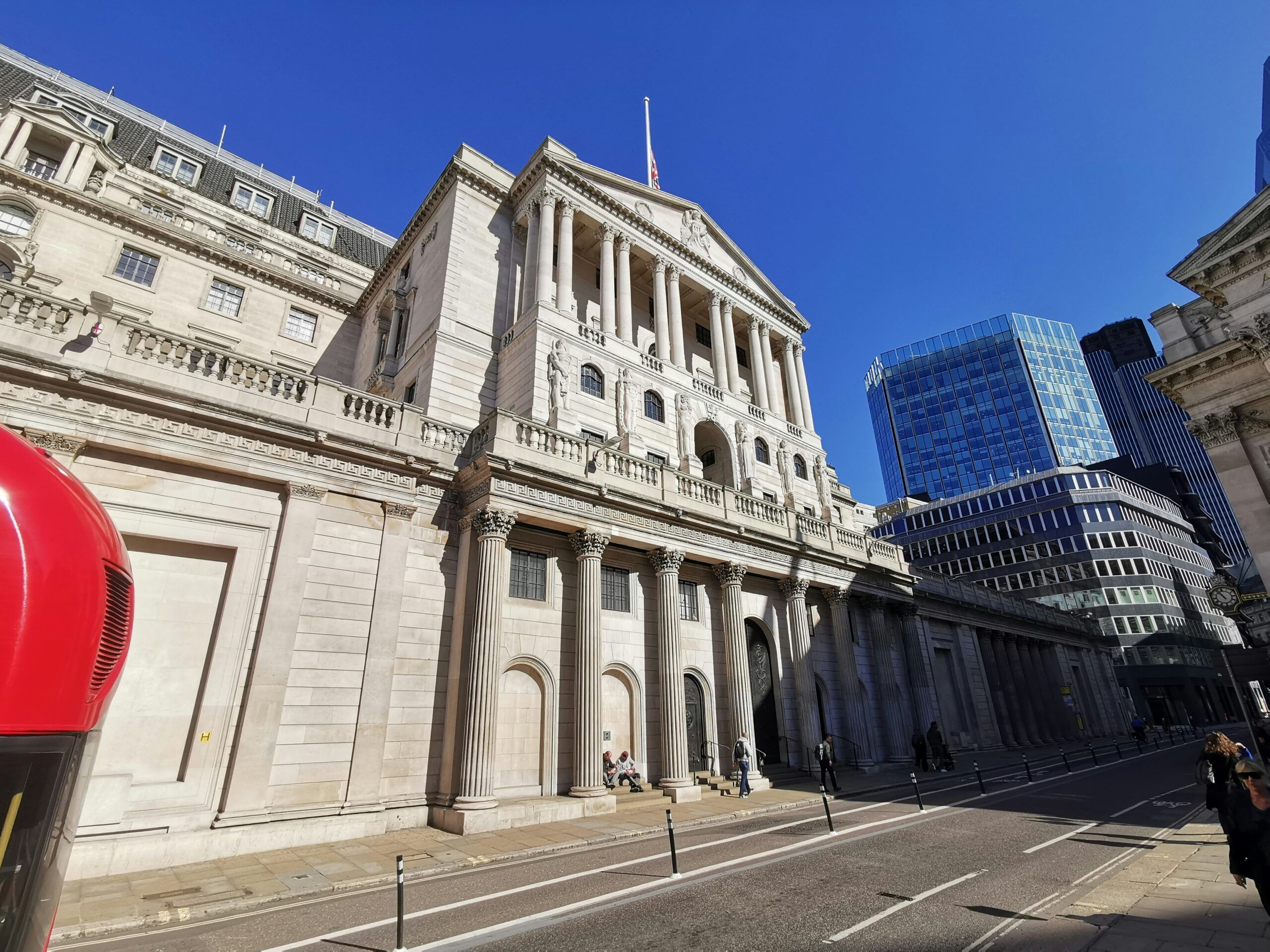Based on forecasts from experts and analysts this month, the eurozone economy is expected to see modest, stable growth in 2026. Such growth will be driven by domestic demand, with inflation close to the ECB (European Central Bank) target of 2%, with various models showing an inflation rate of between 1.8% to 1.9%. It is expected that the zone will continue to enjoy low unemployment; however, the outlook is clouded by persistent global trade tensions, persistently high government debt levels, and heightened geopolitical risks.
Germany
Analysts suggest that over the next ten years, Germany will run an annual budget deficit of circa 4% of GDP, increasing its debt-to-GDP ratio by between 20 and 30 percentage points. However, Germany has a current debt ratio of under 65% and it is felt that in 2026, there is little to worry about regarding the country’s fiscal health, with an estimated growth in GDP of 1.2% – 1.4% due to increased spending on defence and infrastructure. This is higher than predictions made earlier in 2025, where the figure was circa 0.8% in potential growth. Experts predict that the government will use part of its fiscal package to invest in technology-related growth areas (less susceptible to trade tensions), rather than relying on traditional industries such as auto manufacturing.
France
Experts predict that the French economy will grow modestly at about 0.9% (below the eurozone average), against a backdrop of rising unemployment, political instability, and fiscal uncertainty, reflecting a government budget that has already failed to pass through parliament four times this year. Inflation has been forecasted to rise to circa 1.30% – 1.60%, which analysts have attributed to higher energy and food prices. Public debt is set to increase to 120% of GDP by the end of 2026, whilst the government deficit is expected to decline to circa 4.9% of GDP.
It is expected that a rebound in the services sector will offer some relief, whilst currently the industrial sector is on the wane, especially in the aeronautical market. On the domestic front, budget uncertainty and political instability have had a negative impact on business and consumer confidence; however, the economy on the whole is shielded from many global trade issues due to a more diverse export profile.
Spain
Predictions for growth in the Spanish economy are somewhat at variance with analysts and experts who predict growth from anywhere between 1.9% (OECD – Organisation for Economic Co-operation and Development) to 2.3% (European Commission). Growth will be primarily driven by strong investment and private consumption supported by purchasing power gains and employment growth. Experts suggest that inflation is expected to be moderate and hit an average of 2.0%, with drivers being a reduction in energy inflation as well as a moderate decrease in the price of food. The housing market is expected to continue enjoying the current upward trend, which is being driven by a fall in interest rates, population growth, improved purchasing power, and buyers from overseas.
The government budget deficit is expected to decrease to 2.1% of GDP, and the debt-to-GDP ratio is expected to fall below 100% for the first time since 2019. According to several analysts, negative impacts on growth are expected from global uncertainty, which may be driven by weaker economic activity among some of Spain’s key trading partners in the eurozone and tensions in the global trading arena. However, the continued implementation of the NGEU (Next Generation EU Funds) will help boost investment, particularly in construction and urban renewal.
The Netherlands
Experts suggest that in 2026 the Dutch economy will experience a decline in growth with predictions of a circa 1.00% – 1. 30% increase, primarily driven by strong domestic demand from household consumption and government investment and spending. On the domestic front, household consumption and government spending are expected to be the main drivers of economic growth, supported by rising real wages and public investment programmes. Inflation is expected to gradually recede but will remain above the eurozone average of 1.8% – 1.9%, mainly due to prices in the services industry and potential tax changes. The government deficit is predicted to widen to around 2.70% of GDP, whilst public debt is expected to remain below 50% of GDP.
On the unemployment front, the labour market is expected to remain tight with unemployment only marginally rising between 4.0% – 4.2%. Negative impacts on growth are expected from exports and business investments, which are projected to be suppressed by ongoing global uncertainties, including trade tensions and a political landscape with the potential to impact long-term investments in defence, energy, and housing. Indeed, geopolitical uncertainty and potential US tariffs on imports of EU goods pose a significant downside risk to the Dutch economy, which is highly export-oriented, and any escalation could lead to a reduction in export growth and reduced business investment.
Italy
Analysts predict that in 2026, the Italian economy will enjoy a modest growth in GDP of circa 0.80%, driven by public investment from the NRRP (National Recovery and Resilience Plan), with growth also being driven by domestic demand rather than by net exports. Predictions for inflation in 2026 vary, with the European Commission anticipating a figure of 1.30% whilst the OECD and the IMF (International Monetary Fund) predict figures of 1.80% and 2.00% respectively. The government deficit is projected to recede to an estimated figure of 28% of GDP, whilst estimates vary for gross public debt, with the IMF and the European coming in at 137.90% and 138.30% respectively of GDP.
Experts suggest that a negative impact on growth may come from the employment sector, where declining labour productivity is a persistent issue for the Italian economy. Global factors such as geopolitical tensions, potential trade tariffs from the United States, and weaker demand in key European markets will also pose risks to Italy’s growth and export performance. Analysts expect Italy’s net external trade to have a slight negative impact on growth, as imports are likely to outpace exports in 2026.
Greece
Analysts predict the Greek economy is projected to continue its GDP growth in 2026, with the European Commission expecting a figure of circa 2.20%, whilst the Greek Fiscal Council estimates a growth figure of 2.40%. Growth is expected to be driven by domestic consumption and government investment supported by European Union funds. Inflation is expected to decrease to circa 2.30% to 2.40% whilst unemployment is predicted to fall to approximately 8.6%. Also, the debt-to-GDP ratio is expected to continue its downward path, falling below 140% by year-end 2026. The European Commission has predicted that the government’s general balance is expected to be a surplus of 0.3% of GDP.
Positive factors that may influence growth are EU funds, including RRF (Recovery and Resilience Facility), that are expected to support investment and consumption, and the government’s final budget for 2026 includes a focus on tax reform and social support to boost growth and household incomes. Several analysts have suggested that tourism will continue its strong performance into 2026 and is expected to be a significant driver of the Greek economy. It should be noted that under the EU RRF, the Greek government is under pressure to complete projects by the August 2026 deadline, or else funds may be withdrawn.
Belgium
Experts suggest that the outlook for the Belgian economy in 2026 is one of moderate growth with estimates around the 1.10% – 1.20% mark. This marks a gradual recovery from 2025, where growth, according to data released, is currently at 1.00% and growth is expected to be supported by a rebound in exports, moderating wage growth and a pick-up in import demand. However, this is dependent on political stability and the effective implementation of structural reforms to address fiscal challenges, plus a potential risk from a slower-than-expected recovery in demand from the European Union.
Inflation is expected to reduce to circa 1.60% – 1.80% due to lower prices of goods and energy, whilst the unemployment rate has been projected as a small increase to 6.20% due to a short-term consequence of reforms in both the labour market and pension arena. Analysts advise that the budget deficit is expected to rise to 5.5% GDP, mostly due to increased spending in the defence sector and rising interest payments on the public debt, which is predicted to continue upward to circa 109.80% of GDP.
Key economic drivers for 2026 are increased investment, where analysts advise that gross fixed capital formation is expected to rebound, supported by improved financial conditions. Further boosts to investment will come in the form of significant public expenditure on infrastructure projects financed by the European Union’s RRF, plus increased spending on the defence sector. Increased export growth is predicted for 2026, helped by improving cost competitiveness; however, as with other countries, U.S. tariffs and continuing trade uncertainty could dampen the outlook for exports to the United States and key eurozone partners.
Turkey
According to a number of financial commentators, the outlook for the Turkish economy is a continuation of the disinflation process, along with a moderate and resilient GDP growth, which is expected to grow by 3.80% rising to USD 1.84 trillion. Inflation forecasts suggest a figure of 23% by the end of 2026, with the central bank setting a target of 20% for the same period. The economy of Turkey is expected to maintain its monetary easing cycle throughout 2026; however, the government must guard against key risks, which are domestic political uncertainty and persistent inflationary pressures. The budget deficit is expected to narrow, with the World Bank advising a figure of 3.60% of GDP, with other projections suggesting that the labour market will remain stable.
Positive signs for the economy are the continued implementation of orthodox economic policies by the government, which is seen as crucial for restoring fiscal discipline and reducing inflation. Furthermore, the government’s medium-term economic programme outlines structural reforms aimed at transitioning towards high-value-added industries and a green economy.
Poland
Experts are predicting that in 2026, the Polish economy will continue its strong growth, forecasting a growth rate of 3.50% of GDP, supported by public investments and European Union funds. The forecast for inflation is expected to be in the region of a decrease of 2.90% – 3.80%, whilst wages are expected to rise by circa 7.60%. However, due to persistent government spending, the public debt-to-GDP ratio is expected to increase in 2026, whilst rising further to 70% in 2027.
There are several risk factors to be considered, and whilst the absorption of EU funds is critical for growth, the successful implementation depends on meeting certain reform requirements. On the fiscal front, excessive government spending, especially on social and defence programmes, is increasing debt levels and putting pressure on the budget, despite fiscal consolidation plans by the government. As already advised, inflation is expected to fall, but persistent wage growth and other price pressures could have a negative impact on reducing inflation.
In 2026, the Polish economy is expected to outperform the European Union average, with primary drivers being strong domestic demand based on rising wage growth and significant public investment financed by EU funds, especially RRF (Recovery and Resilience Facility). However, as mentioned above, the government cannot afford to miss the deadline. The national currency (Zloty) is expected to remain stable, benefiting from prospects of strong growth. However, predictions may well be subject to external pressures such as geopolitical tensions and global trade policy, where U.S. tariffs could potentially affect demand from Germany.
On the equities front, analysts suggest that the outlook for the Eurozone in 2026 is one of cautious optimism, with modest gains being driven by strategic spending and attractive valuations, but caution is advised due to a strong euro and political uncertainty. European equities are trading at a significant discount compared to their counterparts in the United States, making them an attractive option for investors. The ECB (European Central Bank) has finished (or just about finished) its quantitative easing or rate-cutting cycle, with many analysts predicting that rates will remain stable at 2% throughout 2026, and an environment containing stable rates is usually conducive and supportive of equity markets.










